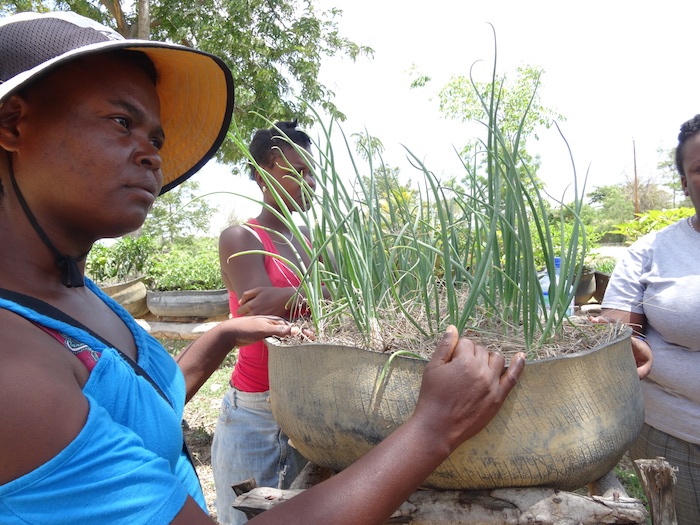Haiti, the western hemisphere’s poorest country, has often been a byword for deforestation and environmental calamity. It is often said that its border with the Dominican Republic can be seen from space, so marked is the difference between the lush forests to the east, and the scarred wasteland to the west.
“In nature everything is connected to one other,” said Jean-Baptiste Chavannes, who in 1973 founded the Papaye Peasant Movement (MPP), which works to tackle deforestation and the climate crisis in Haiti’s poorest regions. “To disturb one is to disturb all.”
Haiti’s woes seem to deepen with each passing month. Widespread protests and rolling fuel shortages have marked daily life for two years.
In July last year, the Caribbean country’s president, Jovenel Moïse, was assassinated in his own home. The following month, its impoverished southern peninsula was struck by a 7.2 magnitude earthquake, killing at least 2,200 people and destroying tens of thousands of homes. Then, in September, a wave of deportations of Haitian nationals from the US, amid an alarming increase in kidnappings, thrust Haiti into further instability.
But underpinning much of the vibrant yet embattled country’s troubles is environmental injustice and food insecurity, with 4.4 million people (of a population of nearly 11 million) at risk of hunger. Widespread deforestation over centuries, largely owing to the colonial timber trade as well as more recent felling for cooking fuel, has damaged fertile lands, and left them vulnerable to erosion, flooding, and drought. Seasonal hurricanes wreak havoc on homes and livelihoods, and contribute to the agricultural degradation each year.
Previous top-down international development projects flooded Haitian marketplaces with unsustainable food staples, hamstringing local farmers’ attempts to achieve food sovereignty.
MPP, a La Via Campesina member organisation, seeks to tackle the climate crisis and related food insecurity by working with subsistence farmers across Haiti. With more than 40 years of experience in Haiti’s rural Central Plateau, MPP works with 60,000 members to improve deforested landscape so people living there can eat, while increasing forest cover to help reduce carbon levels.
“The struggle for food sovereignty is the fight against global warming,” Chavannes said. “All actions aimed at food sovereignty will have a direct impact on the climate crisis.”
“A local approach is better because it creates direct employment, values local knowledge, skills, and resources,” added Jusléne Tyresias also associated with MPP.
“Sovereignty is nurtured as the right of every person to define environmentally friendly food production policies,” Chavannes said. “Respect for human life; respect for the rights of peasant families over agricultural land; the rights of indigenous peoples over their territories; respect for women’s rights and respect for culture; and the ways of feeding people.”
A longer version of this article first appeared on The Guardian on 08 January 2022. You can read that piece here.

